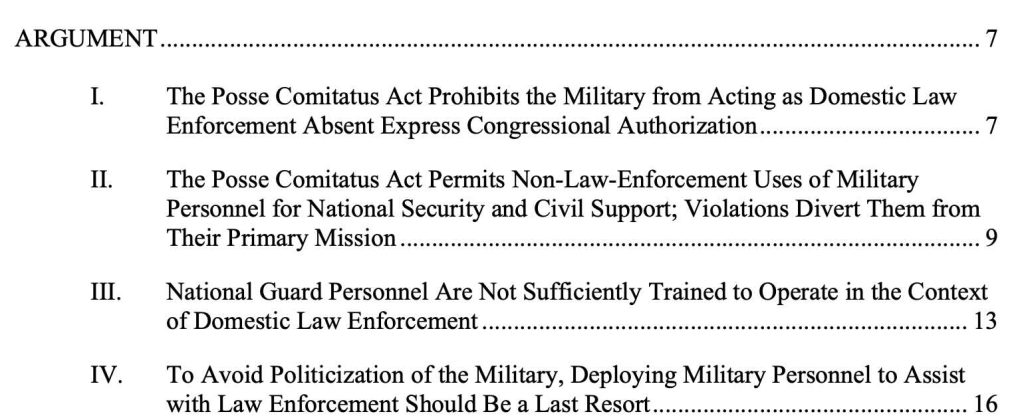A group of retired defense officials filed an amicus curiae or “friend of the court” brief this week in the case of State of Illinois v. Trump, 25-cv-12174, Federal District Court for the Northern District of Illinois.
Although the group does not take a position on the lawsuit itself, their brief spells out their common concerns about the deployment of National Guard members to American cities.
Here’s the introductory section spelling out their interest in the case, along with the major point they make (from the document’s table of contents), followed by the full document.
INTEREST OF AMICI CURIAE
Amici are former secretaries of the Army and Navy and retired four-star admirals and generals. Collectively, they served under each president from John F. Kennedy to Barack Obama. Amici are acutely interested in this case because presidential deployment of the National Guard to perform local law enforcement should be a rare and carefully considered occurrence that strictly complies with the Posse Comitatus Act. Domestic deployments that fail to adhere to these long-established guardrails threaten the Guard’s core national security and disaster relief missions; place deployed personnel in fraught situations for which they lack specific training, thus posing safety concerns for servicemembers and the public alike; and risk inappropriately politicizing the military, creating additional risks to recruitment, retention, morale, and cohesion of the force.
This submission is based on amici’s collective experience serving in and leading our military, their direct experience commanding active-duty service personnel, and their interest in preserving our military’s apolitical role in safeguarding national security.

